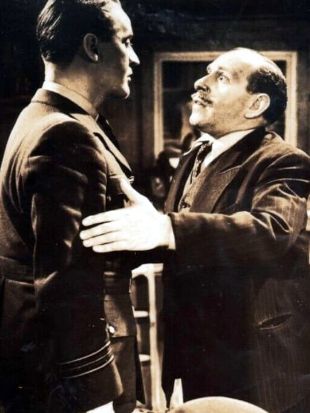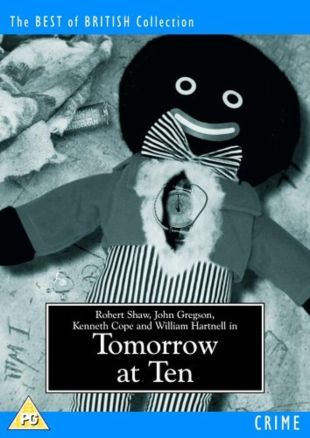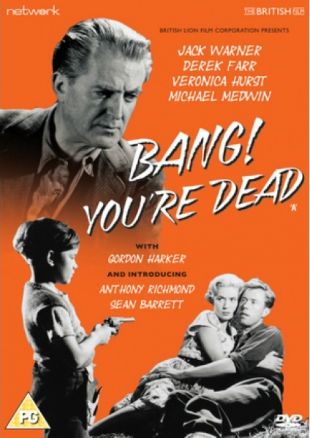Lance Comfort was somewhere between 18 and 20 years old when he started his film career as director and animator of British medical training shorts. Comfort's first feature was The Courageous Mr. Penn (1941), an ambitious biopic marred by amateurish miniature work and a stilted script. He followed this with the successful big-budgeter Hatter's Castle (1941), starring Robert Newton and featuring a young James Mason, then delighted the folks in the cheap seats with the knockabout comedy Old Mother Riley, Detective (1942). In contrast to the low-brow humor of the latter film, Comfort aimed his sights high and scored a major commercial and critical hit -- possibly the biggest of his career -- with the thriller Squadron Leader X (1943), adapted from a story by Emeric Pressburger and starring Eric Portman in the title role. The latter film, as of 2011, is regarded as a lost classic of the era and has been the subject of searches and inquiries by the BFI in recent decades for a complete print.
Squadron Leader X was produced by Victor Hanbury, an older contemporary of Comfort's who filled that same role in Comfort's subsequent wartime efforts Escape To Danger (1943) (also starring Portman -- and also a lost film), Hotel Reserve (1944) (starring James Mason) and Great Day (1945) (starring Portman, Flora Robson, and Sheila Sim). Upon the war's end, he moved into the orbit of John Corfield's British National studios, and reached the pinnacle of popular mainstream cinema with the Margaret Lockwood suspense vehicle Bedelia (1945), based on a novel by Vera Caspary. He and Hanbury also went on to make the thriller Daughter of Darkness (1948), a groundbreaking film in terms of its psycho-sexual plotline, which also created numerous headaches for the censors. Given his track record, Comfort came to specialize in thrillers, and many of his postwar pictures, notably Eight O'Clock Walk (1954) and Tomorrow At Ten (1962), were distinguished by their creative utilization of actual locations and well-sustained levels of suspense. A busy TV director, Lance Comfort was also co-producer of the internationally popular anthology series Douglas Fairbanks Jr. Presents (1952-1955). He continued working, mostly on theatrical thrillers and television adeventure and suspense series, into the mid-1960s, taking a break from those genres for the 1964 jukebox movie (#Sing And Swing, which featured the talents of David Hemmings, Heinz Burt, jazz band leader Kenny Ball, and the British band the Outlaws, featuring a young Ritchie Blackmore on guitar and drummer Mick Underwood.


